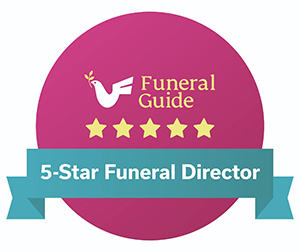- Notify the family Doctor (if not already done so)
- Register the Death at the registrar’s office.
- Complete Form BD8 (if appropriate) when you register and send it to the Job centre Plus or Social Security office.
- Find the Will; this may be kept at home, in a bank or at a solicitor.
- Contact the executor of the will; this may be a relative or a third party (i.e. Solicitor)
- Begin funeral arrangements; the Will may be able to help you.
- If the person who has died was receiving any benefits or tax credits, advise the offices that were making the payments that the person has died.
What happens if there isn’t a Will?
If someone dies without making a will, they are said to have died ‘intestate’. A close relative of the deceased can apply to the probate registry to deal with the estate. In this case, they apply for a ‘grant of letters of administration’. If the grant is given, they are known as ‘administrators’ of the estate. Like the grant of probate, the grant of letters of administration is a legal document which confirms the administrator’s authority to deal with the deceased person’s assets. In some cases, for example, where the person who benefits is a child, the law states that more than one person must act as the administrator.






